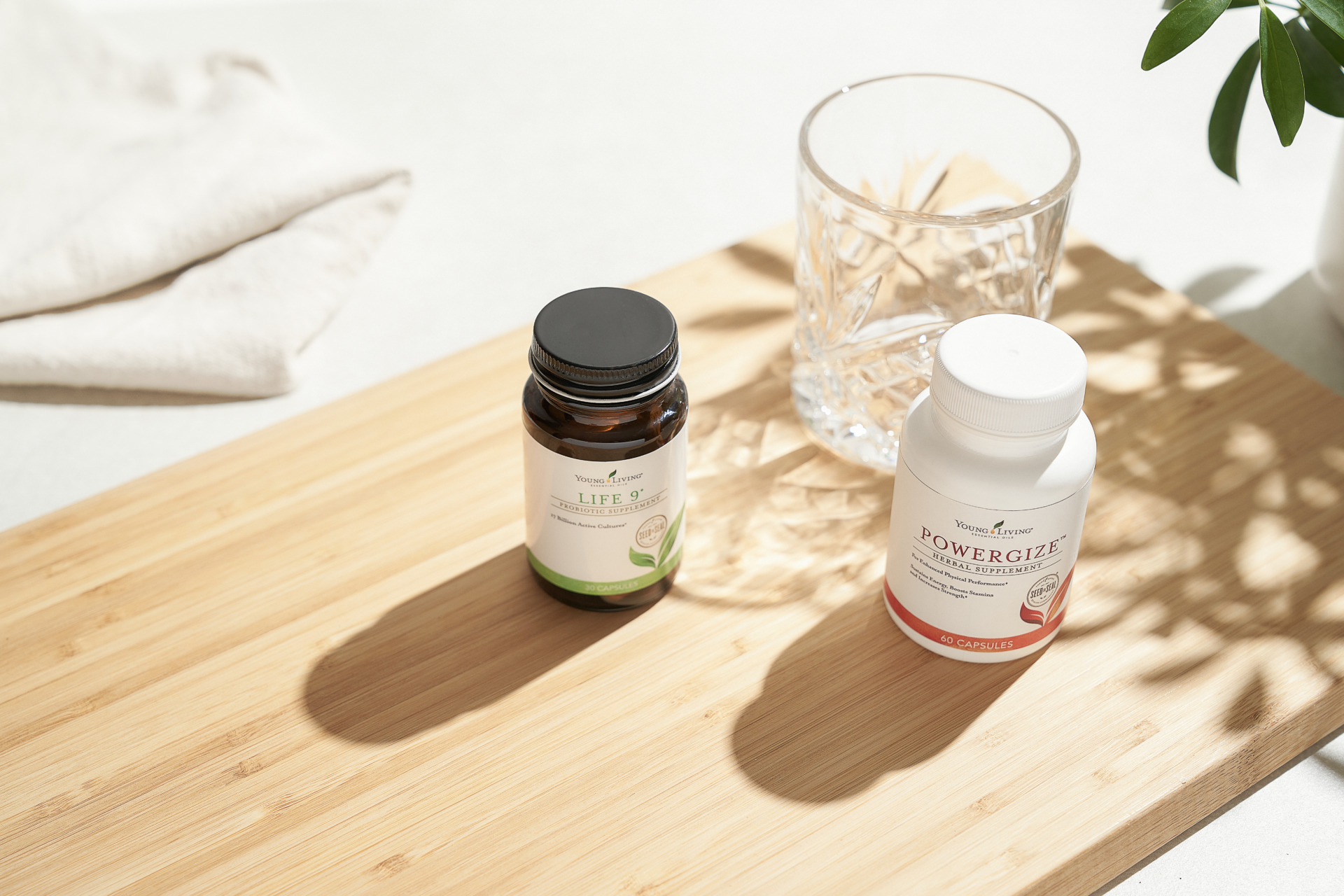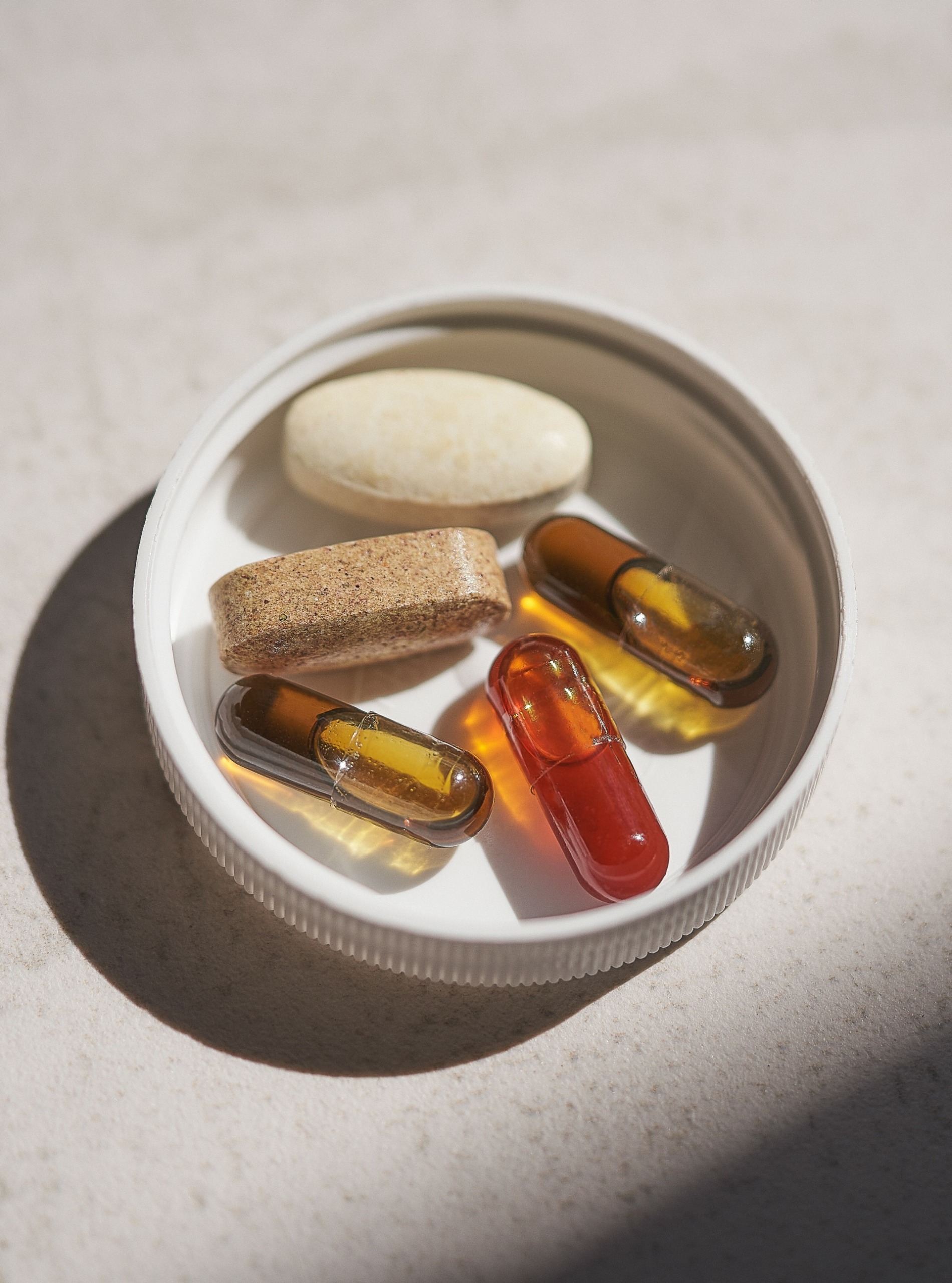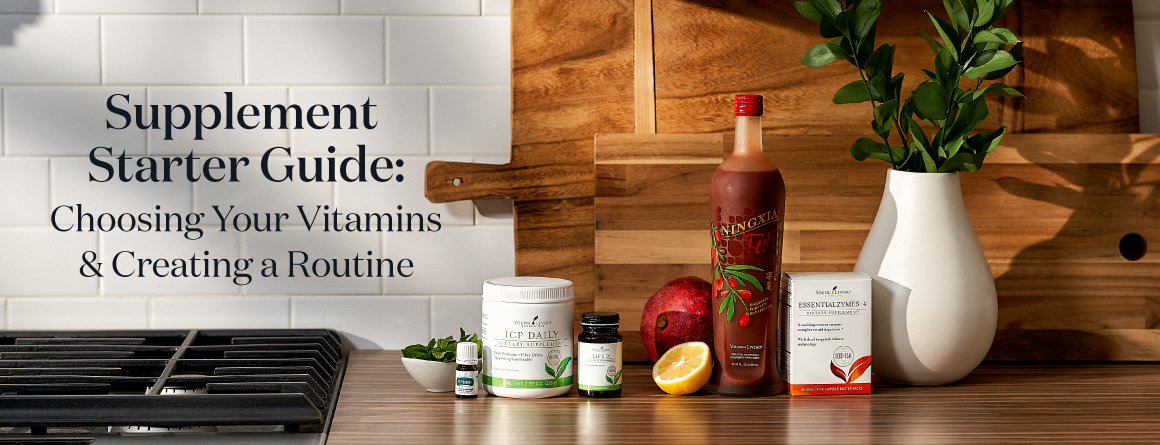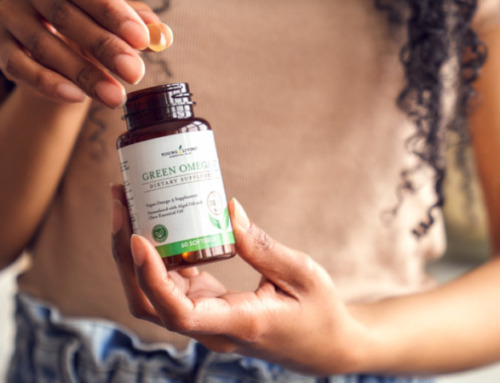Our bodies are complex, and while we do our best to feed and nurture ourselves through clean living, a little help never hurts! On average, 70–80 percent of people living in the United States take some form of supplement every day. This simple self-care routine can help you bridge nutritional gaps, and many have found profound benefits from taking an array of vitamins and supplements. But how do you know which ones to take? Keep reading to find tips and tricks to create a supplement routine you can trust.
Why do people take supplements?
Our bodies require a certain level of vitamins and nutrients to function properly, and while most dieticians prefer that we absorb these nutrients through our food, it’s often difficult to do so. Mass production farming practices have reduced the quality of our food, often putting fruits and veggies on our shelves that may look appetizing but are lacking key nutrients that are found when food is grown with attention and care. Because of this, many people suffer from nutritional deficiencies and turn to supplements as a simple alternative.
In addition to treating deficiencies, many people consume supplements as a preventative measure. Mother Nature is our greatest healer, providing natural remedies in the form of herbs, plants, and minerals. By tapping into the earth’s pharmacy, we can fuel our bodies with nutrients we may not have had access to otherwise, slowly building resiliency within our bodies and achieving overall wellness.
Lastly, those who have food allergies and intolerances, are pregnant, or have a condition that affects their body’s ability to absorb nutrients may find substantial benefit from taking daily supplements. Whatever your reason, there are a few things you should consider before filling your medicine cabinet.

The role of gut health in nutrient absorption
Many people view their brains as their body’s control center, but the gut is where the real action happens. For example, 95 percent of serotonin (the neurotransmitter that controls mood, memory, and learning) is actually made in your gut and is then sent to your brain through various nerves. Studies have shown that a nutrient-dense diet can generate a vast improvement in overall mental wellness, but how does that all work?
When we consume any type of food or drink, enzymes break it down while we chew, then the food travels to the stomach to start the digestion process, which further breaks down the food into vitamins and minerals. Next, they travel to the small intestine, where most of the nutrient absorption occurs.
Known for being a whopping 20 feet long, the small intestine, also known as the small bowel, is lined with soft tissues that wrinkle and fold together. These tissues are covered with microscopic protrusions called villi. The villi are hairlike and their abundance, along with the many tissue folds, create an incredibly large surface area, which is necessary to maximize the absorption of nutrients in food.
If the gastrointestinal system is in poor health, your small intestine will have a harder time absorbing those nutrients—and because gut health affects the whole body, nutrient deficiencies can create mysterious ailments that are hard to nail down. Luckily, your gut is one of the easiest systems within your body to heal, and through proper nutrition either from a mineral-dense diet or supplements, you can improve the health of multiple organs by improving the health of your gut. To learn more about supplements that can improve your gut health, check out this blog post.

Know your baseline vitamin levels
While most people are deficient in some vitamins, minerals, or amino acids, many do not know it until their doctor orders a blood test. Knowing where you currently stand with your nutrient absorption can help you create a supplement game plan and hone in on specific areas that need improvement. Talk with your doctor about testing for nutrient deficiencies or get your blood tested by one of the many companies that offer similar services. Because having too much of a vitamin can have an adverse effect, it’s important to get these tests done before you start implementing supplements. Plus, this will give you a baseline you can refer to later to see if your supplement plan is working.
Developing a supplement routine/schedule
Supplements really get to do their work when you take them consistently, letting the nutrients build in your system and allowing your body to absorb those nutrients on a regular basis. This is why planning and sticking to a routine can make or break your supplement experience. Follow these simple suggestions to craft a supplement routine that works for you:
1. Some vitamins can be taken on an empty stomach, while others need to be taken with food. This information can be found on the label and will help you determine a time frame for taking your supplements every day.
2. It’s easy to miss a bottle when you have a whole lineup of supplements in the rotation. Use a supplement box to prep your vitamins every day and help you stay on track.
3. While you can take all your vitamins at once, it’s easier on the stomach to break up your supplements into multiple doses throughout the day. This will also help your body receive nutrients throughout the day instead of all at once.
4. Instead of taking all your bottles with you when you travel, use a carrying case to easily transport your supplements wherever life takes you.
5. Consistency is key when taking supplements. Plan on taking them at the same time every day to train yourself to remember.
Pairing supplements for an extra kick
Many vitamins and minerals pair well together, amplifying their properties when used in conjunction with one another. Several Young Living supplements are easy and safe to combine. You can mix Mineral Essence™ with NingXia Red® and a drop of Peppermint Vitality™ essential oil or add Sulfurzyme® to NingXia Red with a hint of Lime Vitality essential oil!
Example supplement schedule
Finding a routine that works for you is going to be a practice of trial and error, but you can use the following schedule as a beginner guide to finding your perfect routine:
Morning
B vitamins are a great way to start the day, as they help you get up and moving with added energy support but may interrupt sleep when taken too close to bedtime. Take your B vitamins during your morning routine or try Young Living’s Master Formula™ for added vitamins and nutrients, including vitamin B!
Throughout the day
Remember the importance of gut health? Enzymes like Essentialzymes-4™ can help your body better break down and absorb nutrients from your food. Take two capsules 15 minutes before your meal to help your body absorb as many nutrients as possible.
Instead of cracking open an energy drink that’s packed with who knows what, try taking a shot of NingXia Red 2–3 times per day for natural energy support. Avoid taking it near the end of the day to maintain a healthy sleep schedule.
Night
Improve your gut health while you sleep with Detoxzyme™, a supplement that helps detoxify and cleanse the body while you’re catching zzz’s. You can also try Young Living’s probiotic Life 9®, which features 17 billion live cultures from nine bacteria strains to promote a healthy gut.

Supplements are a wonderful way to tap into natural plant medicines and achieve your wellness goals. Learn your baseline, identify areas for improvement, and then create and stick to a routine to help you close the gap. As you stay consistent, your body will thank you!
Now that you know how to take supplements safely, explore Young Living’s line up of supplements and health products, including the antioxidant powerhouse Golden Turmeric™!
What supplements are in your daily routine?
*This post was co-written with Ed Dailey RN, RN Patient Advocate, E-500 RYT has been a nurse, yoga teacher, public speaker, author, and educator for more than 26 years. His broad nursing background includes post-surgical care, home care, psychiatry, oncology, integrative medicine, and the operating room. Ed has always been passionate about the delivery of healthcare that comes from his own daily self-care. He is a graduate and former faculty member of the Urban Zen Integrative Therapy Program that was inspired by Donna Karan, Rodney Yee, and Colleen Yee. Ed has been on the frontline in changing the delivery of health care by implementing two integrative therapy programs at UConn Health Center and Sacred Heart Hospital in Destin, Florida. Ed has been a public educator for Young Living Essential Oils since 2011 and is now working for Young Living full-time as the Director of Holistic Development. He has been active in helping to develop new programs and education that inspire Young Living members all over the globe. He currently lives in Sarasota Florida and TN with his wife Jena and their three sons.





Leave A Comment